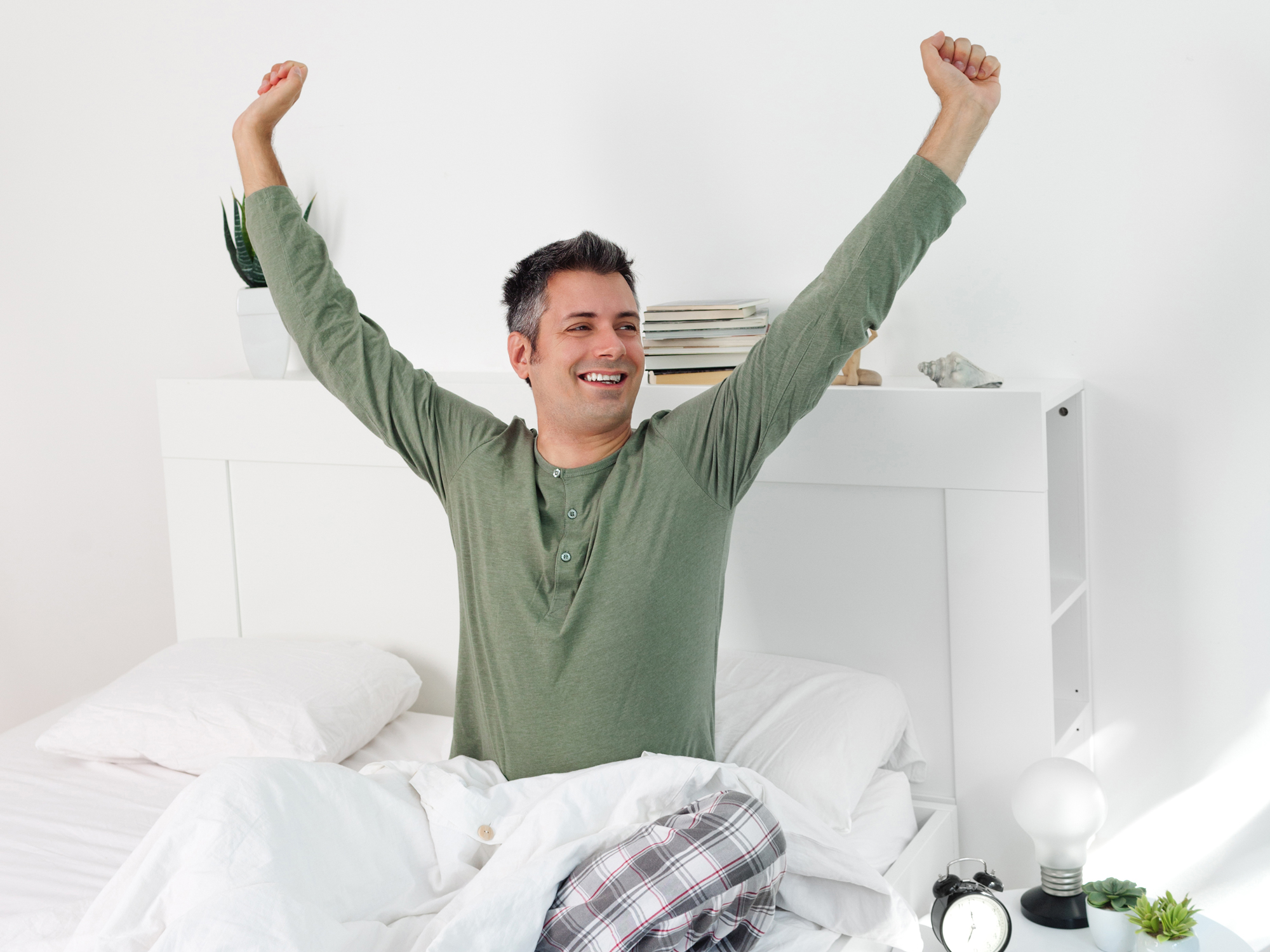Get Easy Health Digest™ in your inbox and don’t miss a thing when you subscribe today. Plus, get the free bonus report, Mother Nature’s Tips, Tricks and Remedies for Cholesterol, Blood Pressure & Blood Sugar as my way of saying welcome to the community!
What gets you out of bed in the morning helps you sleep better at night

What helps you get out of bed in the morning?
Is it your family? A job you love…
Or, are you just high on life?
I ask because if something in your life inspires you to keep getting up and going at it day after day, that means you have purpose in life — and, most likely — that’s the reason you are getting a good night’s sleep too.
At least that’s what a recent study appears to show — that having a purpose specifically results in fewer sleep disturbances and improved sleep quality over time.
The study, done at Northwestern Medicine and Rush University Medical Center involved over 800 older adults; researchers suggest the findings are likely applicable to a broader audience. People who felt their lives had meaning were 63% less likely to have problems falling asleep and they also had moderately better sleep quality. Previous research studies on this subject had similar findings – having a purpose in life generally improved overall sleep.
As a result of these fascinating findings, researchers are interested in expanding the scope of this research to include the use of mindfulness-based cognitive therapy (MBCT) to target purpose in life and to investigate resulting post-therapy sleep quality. MBCT uses cognitive behavioral therapy methods in combination with practices such as mindfulness and mindfulness meditation.
Other ways to improve your sleep quality
Sleep quality is based on many factors including diet, lifestyle, hormonal balance and stress levels.
And many factors can negate it…
For example, exposure to blue light at night shuts off melatonin production, essential for a good night’s sleep. Stress is a major contributor to sleep disturbance, creating a flood of hormones that overstimulate your nervous system.
But regular meditation practice, yoga, or chi gong can help lower stress levels, providing a lifestyle intervention that you can easily incorporate into your routine to help you transition from a busy day to a quieter evening in preparation for sleep.
Additionally, herbs and nutrients that support GABA (Gamma-Aminobutyric Acid), a primary neurotransmitter that exerts a calming, relaxing effect on the nervous system, are also important adjuncts to support your daily routines for good sleep quality.
Well-studied, effective botanicals and nutrients include extracts of Lemon Balm (Melissa officinalis), and Passionflower (Passiflora incamate), L-Tryptophan and L-Theanine. Small doses of the hormone melatonin can help to reset your wake-sleep rhythm.
Combinations of botanicals have been traditionally used in Chinese Medicine to support organ systems and meridians involved with restorative sleep and sleep cycle regulation, including Shi Chang Pu (Acorus gramineus), Bai Shao (Paeonia lactiflora) and Hou Po (Magnolia officinalis). The primary active compound found in the bark of Magnolia, honokiol, has been shown in many studies to support GABA activity, having a calming and balancing effect on the nervous system to effectively promote relaxation.
I recommend a night time botanical and nutrient formula, ecoSleep® for my patients, to support a balanced nervous system, promote healthy circadian rhythms and support relaxation and restorative sleep.
A good night’s sleep supports productive work and a positive mood allowing you to make your contributions to the world — enhancing whatever your purpose in life may be. It looks like the quest for a good night’s sleep may lie in how you spend your time each day.












